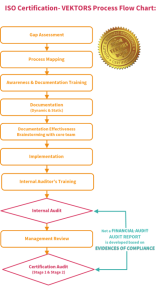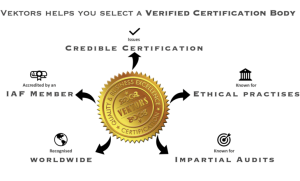The Truth About ISO Certification – What You Need to Know

If you’re considering ISO certification for your organization, there are some things you need to know. While ISO certification is not legally required, it can bring many benefits to your organization, from improving your reputation to enhancing your quality management practices. However, not all certifications are created equal, and there is an aspect of unethical certification that you should be aware of.
What is unethical certification?
Unethical certification occurs when a certification body issues an ISO certificate without conducting an audit or verifying the evidence of compliance to the ISO standard. These unethical certification bodies often offer certificates at very low prices and are not accredited by a recognized accreditation board. This means that the certificate is not reliable and may not hold any value. In contrast, a valid and ethical ISO certificate is always supported by evidence of compliance against the ISO standard.
Why should you care about unethical certification?
Obtaining ISO certification from an unethical certification body can do more harm than good to your organization. Customers and stakeholders may question the validity of the certificate, and it can damage your organization’s reputation. Moreover, you may not actually be following the ISO standard, which can lead to non-compliance issues.
How can you ensure ethical certification?
To ensure ethical certification, you should select a certification body that is accredited by a recognized accreditation board, such as the International Accreditation Forum (IAF). This ensures that the certification body follows strict rules and standards and has been evaluated by a third-party accreditation board. Additionally, you should verify that the certification body conducts on-site audits and verifies the evidence of compliance to the ISO standard.
Investing in ethical certification from a reputable certification body can help your organization achieve its goals and maintain its reputation. Don’t fall for unethical certification schemes that offer cheap and unreliable certificates. Choose a certification body that will help your organization achieve the benefits of ISO certification and ensure compliance with the ISO standard.
In conclusion, while ISO certification is not mandatory or legally required, obtaining ethical certification from an accredited certification body can be highly beneficial for your organization. By selecting a reputable certification body and ensuring on-site audits and verification of compliance, you can enhance your organization’s reputation, quality management, and overall success.


